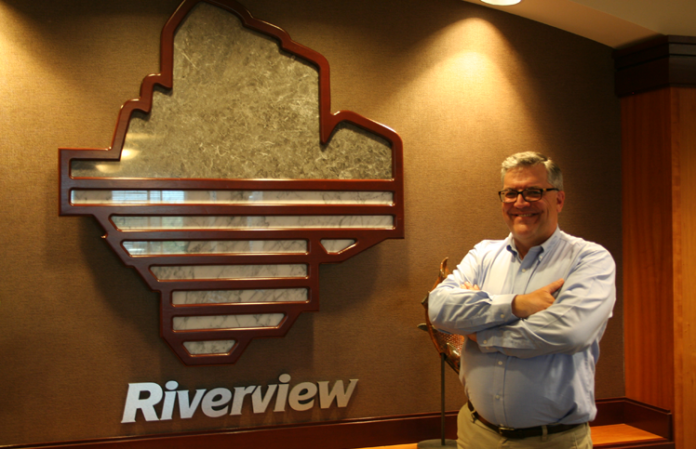Can a robot or algorithm manage investments? The answer is a guarded “maybe” if all you are talking about is investment returns. But Chris Cline, president and chief operating officer for Riverview Trust Company, said that “if you’re paying someone to manage your money you need broader advice than just investment returns in order to get your money’s worth.”
He said that a “complete financial experience” – where clients can get guidance on everything from tax planning for trusts to guidance on real estate investments – is what sets Riverview Trust Company (a wholly owned subsidiary of Riverview Community Bank) apart from many other investment companies.
“We put your investments in context, so we need to know as much about you as possible – not only your current financial situation but also your goals,” said Cline. “Then, we build an investment portfolio that fits those objectives.”
For example, the company’s advisors take into account all phases of a client’s life, even planning for what happens if the client becomes incapacitated by an injury or Alzheimer’s. As trustee, the company could, in that scenario, take on the responsibility of paying bills, or even find the client a place to live.
According to Cline, if you invest money as a trustee, investment guidance is governed by the Uniform Prudent Investor Act (UPIA), which is more stringent than the “suitability” investment guidelines that govern investment brokers. But, said Cline, “we follow those same [UPIA] principles even when we’re investing money for individuals – we put our clients’ interests ahead of our own.”
With approximately $400 million in assets under management, Riverview Trust Company is one of the largest locally-based wealth management firms in the region. Launched 17 years ago, the company invests money in fiduciary platforms for individuals and trusts. Employees at the company average a tenure of 13 years – almost unheard of in the industry. Cline himself came on board in April, with an extensive background in fiduciary and estate planning.
Cline said that the company’s local management is another primary differentiator for the company.
“We are one of only one or two trust companies that has its administration centered in Vancouver,” said Cline. “That’s important to the local business community,” he said, and can often be a tax benefit to clients.
“Because we have local decision making, you can contact the president and talk [things] over,” said Cline. “We’re a lot more open to taking on tough problems and you don’t have to go to a committee in another city to get answers.”
Cline has ambitious goals for the company, including increasing the amount of assets under management to $1 billion in five years (a 150 percent increase over today). He is using every tool available to reach that goal, including using social media such as LinkedIn to connect with potential employees and service providers. The company also uses social media to communicate events and news to current (and potential) clients.
“One of the real benefits of being a local firm is that you can communicate more substance to the local community through social media, compared to being at a large company where there are more restrictive policies,” said Cline.
The company is negotiating a lease for an Oregon office, with plans to open that office early next year. Cline has already hired two new people, with plans to hire at least two more before the end of the year.
But while Cline is focused on company growth, he said that he was going to accomplish his goals “without making all our people salesmen.”
He said that while the industry trend is to “give everybody sales goals,” his own philosophy is to encourage his staff to “answer the questions the clients have and let the sales flow from that.”
With this approach, said Cline, his advisors can collaborate instead of compete.
“It is a unique model in the industry. We are trying to create a sophisticated environment in a small firm,” Cline said. “I want our company to become a place where all the employees feel like they are contributing to what we do, where everyone has a voice in how we run our business.”





